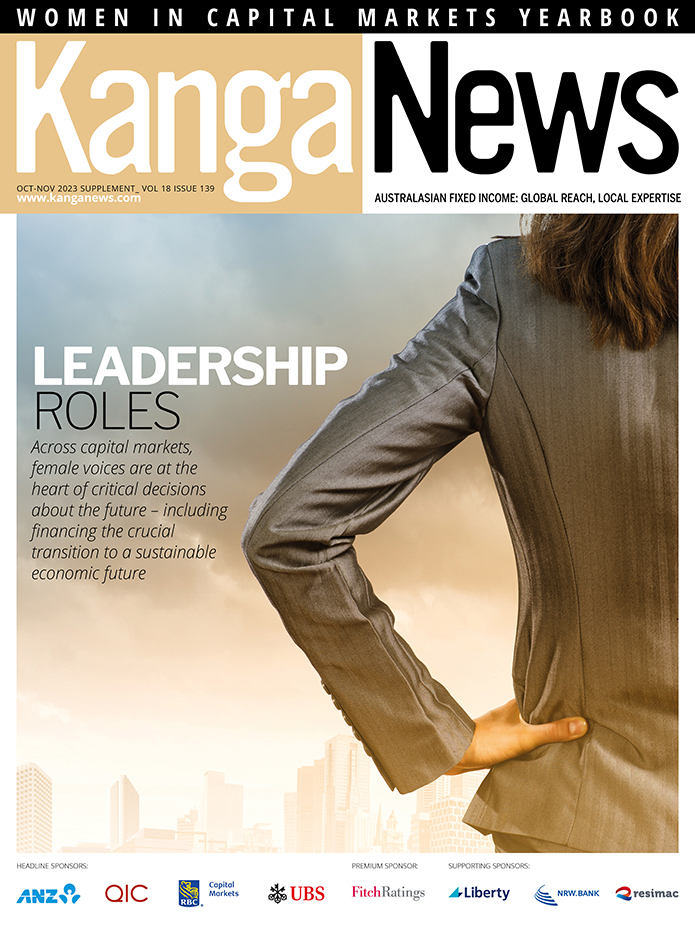
Becoming guardians of a sustainable world
A year after it was established, the New Zealand Sustainable Finance Forum (NZSFF) published an interim report and legal opinion on how the country can shift to a more sustainable footing. NZSFF co-chairs, Karen Silk, general manager at Westpac in Auckland, and Matt Whineray, chief executive at New Zealand Super Fund in Auckland, provide an exclusive overview of this work.
Karen Silk General Manager, WESTPAC and Matt Whineray Chief Executive, NEW ZEALAND SUPER FUND
The NZSFF was launched in October 2018, tasked with designing a roadmap to help the country shift to a financial system that supports economic, social and environmental outcomes that align with New Zealand’s commitments under the Paris Agreement and UN Sustainable Development Goals (SDGs). The NZSFF is the first project launched by the Aotearoa Circle – a unique partnership of public- and private-sector leaders committed to the pursuit of sustainable prosperity and reversing the decline of New Zealand’s natural resources.
The forum’s interim report, published in October 2019, reviewed the latest international thinking and best practice to produce a ‘future state’ vision for New Zealand’s financial system. It assesses how well the prevailing financial system is performing against this benchmark and poses some initial ideas on questions relating to potential pathways for change.
The NZSFF has invited feedback to February 2020, after which the report will be finalised and a roadmap for action on how to shift New Zealand to a sustainable financial system will be drawn up, planned by the end of July 2020. The NZSFF intends that the roadmap will include specific recommendations on reshaping the current financial policy, regulatory and market framework.
“He waka eke noa”
(We are all in this canoe together)MAORI PROVERB
Update from NZSFF co-chairs
New Zealand’s indigenous Maori people see our place it the world in terms of Kaitiakitanga, which roughly translates to guardianship. It is a concept that fits nicely with our understanding of sustainable finance and has guided our work of building a stronger economy.
The NZSFF has been established to set up the framework for our country’s financial system, so it supports the transition to a low-emissions, resilient, resource-efficient, just and inclusive economy.
We believe everyone in the investment community should see themselves as guardians, or kaitiaki – because the choices we make about where to allocate capital and how to price risk underpin how the global economy operates.
This means we have direct influence over the wellbeing of people and the planet. Long-term societal trends have an impact on financial outcomes – this is the impact on business– and lending, investment and insurance decisions also have an impact on long-term societal trends – this is the impact of business.
The NZSFF has named leadership, improving the availability and quality of environmental and social data, and pricing natural and social capital as its three top priorities. One key goal is to see what economists call ‘negative externalities’, whether they be the impact on the climate, the loss of biodiversity or the impact on people of unjust labour practices, properly priced into the market.
In the course of consultation for the interim report, we heard that Maori do not think in terms of negative externalities – nothing is external to the system. Rather, everything is interconnected. It is the understanding that you cannot divorce the actions of business or investment decisions from the wider world, because practically you either do damage to the whole system or eventually your actions will catch up with you and the consumer, regulator or competitor response will overwhelm you.
Having accurate and comparable data is a key element in valuing assets and investments. However, environmental and social data needs improved accuracy, comparability and availability to become integral to financial decision-making.
Currently, the global financial system is built on models, norms and rules that do not reflect the full cost of business or respond to changing societal expectations.
We believe integrating environmental and social impacts will improve the accuracy of valuations, accounting and capital-adequacy models, and internalise social and environmental costs. Doing so will create a system that is more stable, sustainable and resilient. It also aligns capital with the long-term wellbeing needs of society, the environment and the real economy. It will prevent the misallocation of capital to activities that use natural capital but don’t bear the cost of that usage.
As part of its work, the NZSFF produced an independent legal opinion.
This says climate change has moved from being recognised solely as an environmental issue, to a discrete – and foreseeable – financial risk to business. The foreseeable consequences of climate change, arising both from direct physical impacts and the second-order effects of transitioning to a low-carbon economy, should be managed by directors and investment professionals as they would any other financial risk. The opinion also states that fund managers, in acting in the best interests of their investors, now have a duty to take climate-change risk into account when designing investment policies, where to do otherwise could pose a material financial risk to the portfolio.
Fund managers may also need to implement a climate-change investment strategy to future-proof funds for investors. The effect we witnessed of an Australian legal opinion along similar lines on the discussions around Australian board tables was significant and we are already hearing of a similar response in New Zealand.
The change to more sustainable finance systems is taking place around the globe, and economic foundations are shifting to accommodate this change.
For example, the Task Force on Climate-related Financial Disclosures (TCFD) is gaining international momentum in pushing businesses to provide more information on climate-change risk, with the UK mandating disclosure requirements for large companies and asset owners by 2022. The government is currently consulting on a proposal to make TCFD reporting mandatory in New Zealand.
In September 2019, the Principles for Responsible Banking were launched by the UN Environment Programme Finance Initiative in New York, covering 130 banks from 49 countries, with more than US$47 trillion in assets. The principles intend to align banks’ strategies with society’s goals as expressed by the SDGs and the Paris Agreement.
The EU is introducing stronger reporting requirements regarding sustainable finance with a strong focus on taxonomy, while the Australian Prudential Regulation Authority has stated that climate risk is foreseeable, material and actionable. In New Zealand we have legislated a target of producing net zero carbon emissions by 2050, while environmental, social and governance reporting was recently incorporated into our stock exchange’s corporate-governance code.
Asset owners, investors and businesses should become the guardians of these changes. Building a more sustainable finance system will improve decision-making, better allocate capital to productive uses, increase transparency and facilitate the long-term wellbeing of society. It is not just the right thing to do. It also makes economic sense.

WOMEN IN CAPITAL MARKETS Yearbook 2023
KangaNews's annual yearbook amplifying female voices in the Australian capital market.













